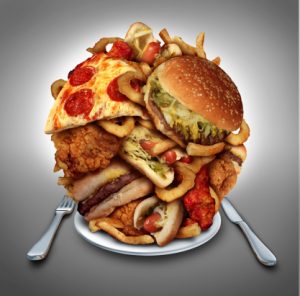
Vincent Mirabella, co-author of the study, said that mice with a hormone deficiency of GLP-1 were more likely to nosh on high-fat food. But when the researchers added more of the hormone, the mice were able to block the craving of high-fat foods.
Brain hormones can control how much we eat and regulate eating behaviors. These hormones are suppose to signal when we become full or satisfied. But when they are low we never become full or satisfied.
Researchers do not conclude that brain hormones are the sole reason as to why a person may overeat, but the findings do reveal brain hormones as a contributing factor.
Senior author, Zhiping Pang, said that there are areas of the brain that control addictive behaviors such as nicotine and alcohol abuse. Pang said that overeating can be considered a food addiction or a neuropsychiatric disorder. Currently effective treatments to combat obesity, which can be caused by overeating, are minimal.
The research was published in Cell Reports.
Source:
www.rutgers.edu/